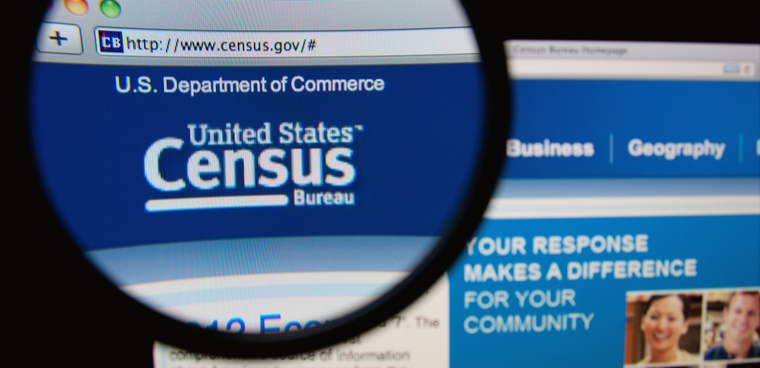Census worried about costs of late changes to 2020 survey
The Census Bureau has added a new area to its list of its major operational concerns that could affect the design or the successful implementation of the 2020 count: cost impacts of late changes.

Late changes to the 2020 census form, including a controversial citizenship question, could take a toll on the success of the population count.
That's the word from the Census Bureau itself. Assistant director of Decennial Census Programs Directorate James Treat announced the addition of the new "red" risk area covering the late survey changes to its list of major operational concerns at an April 20 program management review.
The other two major risk areas are public perception of the bureau's ability to safeguard response data and the prospect of a cybersecurity incident.
Census CIO Kevin Smith said cybersecurity for the data collection systems "is a top priority for the census" because "if something goes wrong with cyber, it's going to directly impact potential response rates."
Census experts have argued that the lack of testing surrounding the addition of the citizenship question could decrease response rates. This could lead to increased spending on door-to-door enumeration.
The addition of the new risk category, which comes in the middle of Census's critical and final field test, acknowledges the prospect of a cost increase as a result of the late change. So far, the field test in Providence, R.I. has yielded a response rate of 33.3 percent, a figure just slightly short of bureau projections. Next up, beginning May 9, is the follow-up with non-respondents.
On the IT side, the Enterprise Censuses and Surveys Enabling system, which includes internet self-response capabilities, "encountered some issues" during the Providence test, said Al Fontenot, associate director of Decennial Census Programs Directorate.
"Although none of them were showstoppers, they did cause some less than optimal performance," Fontenot said.
The nonresponse follow-ups include the use of Apple iPhones by enumerators to collect data. One snag Fontenot mentioned is that the bureau is advising enumerators in the Providence test to stick with the older 11.2.6 iteration of the iPhone operating system, because of problems with the 11.3 update.
Fontenot also said the Technical Integrator contract, awarded to T-Rex to all of census's 50-odd IT systems needed for 2020, is another "management focus" because of its scope and "it basically touches every operation system and application."
Atri Kalluri, chief of the bureau's Decennial Information Technology Division, explained past discrepancies between Census's measurements of IT system readiness and the Government Accountability Office's.
At an April 18 congressional hearing, GAO's head of IT issues Dave Powner testified by his count, 30 of the 44 systems have been developed, and just eight have completed testing.
Kalluri said 10 of the 40 systems that have been deployed "will be having enhancements made for future operations as part of future releases, which means 30 systems have completed their development activities for the 2018 test with no further changes."





